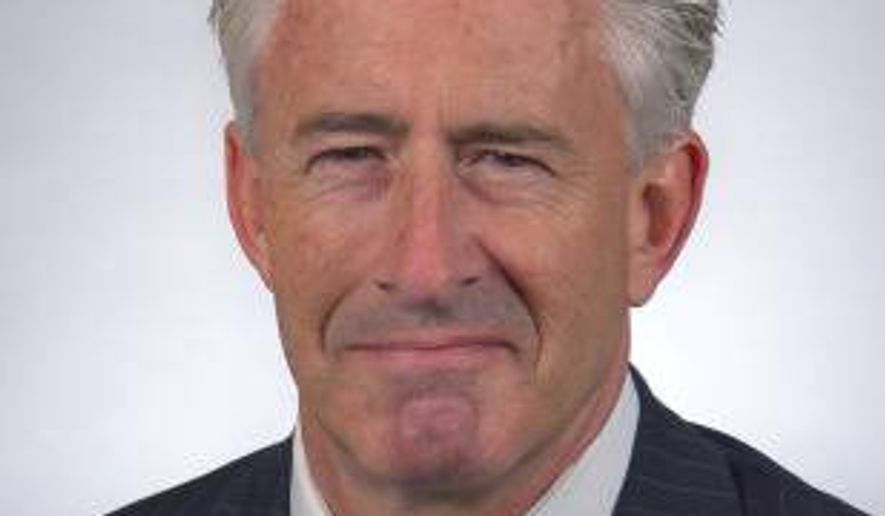Two years ago, the New York attorney general’s office prepared a legal brief laying out a potential case for asking courts to make the U.S. cut greenhouse gas emissions based on international treaties, according to documents reviewed by The Washington Times.
Legal analysts say it’s a tough sell, and the case was never filed.
But administration foes say the legal brief takes on new significance after reports this week that President Obama is working on another international agreement to combat climate change, potentially going around Congress to reach what has been described as a “politically binding” deal.
Christopher Horner, a researcher who regularly battles the Obama administration over environmental policy and who obtained the new documents through an open records request, said the New York legal brief raises the possibility that a new political deal could eventually be turned into a binding obligation.
“We know where the road they’ve laid out goes — to court,” Mr. Horner said. “They sigh and agree to settle, under which the U.S. turns these promises into law, circumventing the constitutional process for international agreements.”
The New York legal brief argues that the U.S. did ratify a 1992 U.N. climate change treaty laying out broad goals, and even though the U.S. didn’t ratify the 1997 Kyoto Protocol setting strict goals, that deal was negotiated under the auspices of the 1992 treaty. A 2009 conference in Copenhagen was also conducted under the 1992 treaty’s framework, the legal brief says.
SEE ALSO: Angry over climate change talks, tea party group says: ‘Tell a Prius driver how you feel’
According to an email accompanying the legal strategy paper, it was written by Katelyn Ciolino, who, according to a LinkedIn page, was a law student intern in the attorney general’s office at the time.
She sent the work to Lemuel M. Srolovic and Monica Wagner, who were the top two officials in the attorney general’s environmental bureau.
Messages sent to Mr. Srolovic and Ms. Wagner were returned by a spokeswoman who said the attorney general’s office would have no comment.
The office never pursued the strategy, and experts said it would be a tough case to make to a court.
“That would be a real stretch,” said Michael B. Gerrard, director of the Sabin Center for Climate Change Law at Columbia Law School.
He said the 1992 treaty laid out such vague goals that it is unlikely a court would find targets in it that would bind the federal government.
“The U.S. courts have not been receptive to making up their own rules on climate change,” Mr. Gerrard said. “They are certainly willing to enforce statutes on the books, such as the Clean Air Act, but they don’t want to make up their own rules, and implying an obligation from the ’92 convention would be very close to that.”
Mr. Obama has previously used authority he’s claimed under the existing Clean Air Act to impose restrictions on U.S. power plants.
But he’s been stymied in his efforts to have Congress impose stricter policies.
The New York Times reported this week that the president is now working on a new international agreement that could get other countries’ support but that wouldn’t need to go to the Senate for ratification as a treaty. It wouldn’t have the force of law, but would rather be a political document designed to pressure nations to act.
One environmental activist told the newspaper there was “some legal and political magic” to what Mr. Obama was trying to do.
Analysts said Mr. Obama has a tough balancing act trying to negotiate the strongest deal possible in order to meet his political goals but knowing that the stronger it is, the less likely he could get Congress to agree to it.
“On the one hand, if the administration was in a mode of pledging something that it would really try to take to the Senate for ratification, that might reduce the ambition of the target. There’s some relationship between the stringency of the promise and the probability of getting it through,” said Adele Morris, director for climate and energy economics at the Brookings Institution and a lead climate negotiator during the Clinton administration.
But administration opponents, who have watched the president’s other moves to skirt Congress, fear he will push the legal envelope.
Mr. Horner said the New York attorney general’s legal brief suggests other avenues for action. He said that in addition to pressuring the Environmental Protection Agency to act, lawyers could push the Securities and Exchange Commission to lean on companies to acknowledge their greenhouse gas emissions.
That could leave investors skittish, and could open up new avenues for liability lawsuits, Mr. Horner said.
• Ben Wolfgang contributed to this report.
• Stephen Dinan can be reached at sdinan@washingtontimes.com.




Please read our comment policy before commenting.